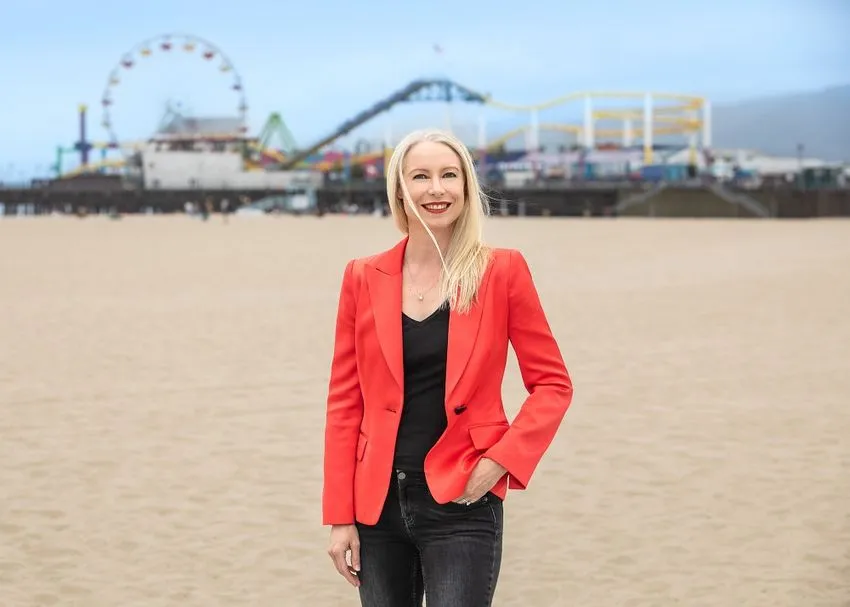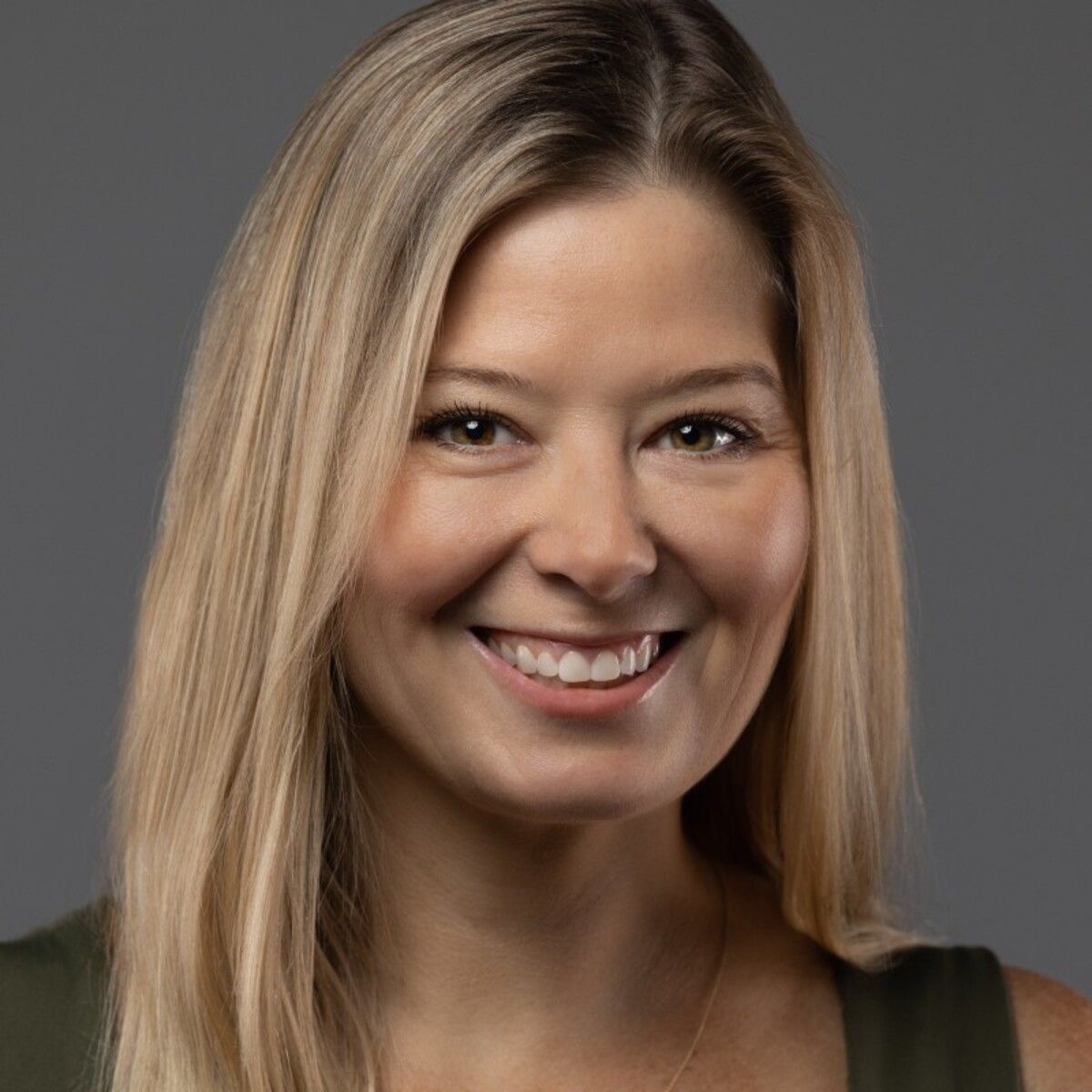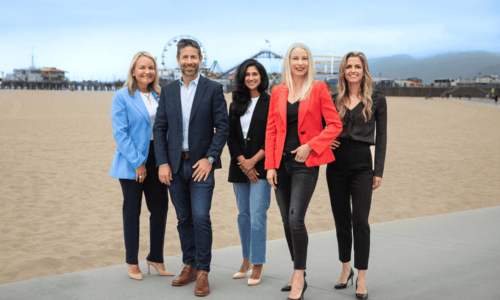This week ALIAVIA Ventures announced the close of its AU$13.5M fund focused exclusively on backing female-founded startups in Australia and the US. The venture firm’s criteria for its portfolio are Australian and American pre-Seed and Seed-stage startups with at least one female founder building a B2B or B2C tech company.
I sat down with ALIAVIA co-founder Marisa Warren to learn how this fund came to be, why she believes the unicorns of the future will be run by women and, a favourite topic of mine, what founders should know about expanding into the US.
Women supporting and investing in women (especially across international borders) - we love to see it!

Paying it forward
ALIAVIA co-founders, Marisa Warren and Kate Vale, have significant careers in tech, dating back to 1997 (SAP, Microsoft and Workday for Marisa and for Spotify, YouTube, and Google for Kate). This means that they’re no stranger to up and down cycles, they have a deep understanding of product innovations and know what it takes to make it in corporate technology companies.
It also means that neither of them are strangers to being the only woman in the room. They’ve both unfortunately experienced fellow women, in those sought after and hard-won leadership positions, being less than supportive to allow other women to have a seat at the table. Warren and Vale knew from these encounters there had to be a better way to foster supportive mentorship, over competition, when it came to helping women thrive in the business world.
It was 2015 when Warren was living in New York, when she first felt drawn to the idea of backing female founders (before it was ‘cool’). Warren had, like many visionaries, wanted to do more and to give more. From that desire ELEVACAO, a New York based pre-accelerator to support female tech founders was born. ELEVACAO has had 175 graduates go through the program, raised a total of over $120 million and achieved three exits in the US and Australia. Not too shabby for a dream to help other women get investment-ready and funded.
Even with these achievements, it was during COVID that the defining point emerged. Warren knew the power of female founders, and through both personal experience and ELEVACAO, understood the struggles that the women were going through on their fundraising journey. Seemingly overnight though, the funding dried up overnight across both in the US and Australia.
Instead of admitting defeat when the market turned, Warren turned to co-founder Vale and shared what she saw as an opportunity. With brilliant female founders in the pipeline that they believed in and wanted to invest in, the answer was clear.
“Let's start a fund.”
Numbers don’t lie
There’s a lot that goes into building a billion-dollar company and many barriers that women specifically face (sexism in public and in the professional realm), cultural expectations around raising children, the list goes on.
We also all know the stats - all-women led teams get less capital. Specifically, in the US, of the $238.3 billion in venture capital allocated last year, just 1.9% went to startups with all-women teams, even though private tech companies led by women have 35% higher ROI.
Warren puts that into perspective by pointing out that in 2019 (when investing in women founders was at an all time high) it only reached 2.7% of capital allocated to female founders across the US. That 2.7% represented US$5 billion for all women founders, which was the same amount that WeWork raised that year.
If we know that women founders deliver a higher ROI, why are they still getting minimal capital?
“Biases. You have 95% of the investors are white men, and people tend to invest in what they know. And particularly when COVID hit (that all time high of 2.7% allocated) went backwards, because people retreated back to investing in what they know and that's typically what they look like”, says Warren.
It all starts with the LPs
One of ALIAVIA’s anchor investors Carol Schwartz is quoted saying:
“Marisa and Kate are pioneers—they’re the first and only pre-Series A VC in Australia to be established by, and invest exclusively in women, and they continue to lead the charge to see great equality in VC funding.”
ALIAVIA is leading this movement through a few different means. First, their investment mandate. Warren believes it's important that VCs like ALIAVIA actually have a specific mandate to invest in women. Warren notes that currently in Australia, there isn’t any other firm investing in pre-Series A companies with this mandate. Warren believes that more firms (and hopefully some larger ones) need to follow suit and take action, otherwise we won’t see the necessary change in the industry.
The second piece is allowing the numbers (quotas and KPIs) to really drive behaviour. LPs (limited partners, who provide the capital for VCs to invest in startups) need to be holding VC firms accountable to achieve this goal of investing in female founders. It all comes down to the LPs using their dollars to help influence a positive outcome here; quite literally needing them to put their money where their mouths are.
A long road
Both the US and Australia are a long way from gender parity, which is pretty disappointing.
One bright spot? Warren points out that California has now passed that bill on reporting (which will go into effect in March of 2025) where all venture firms who invest in California-based startups have to report their diversity metrics across each year.
Referring to the bill, Warren said,
“That's going to shine a real light on just how diverse companies are. I'm hoping that Australia follows suit with something like that from a government perspective. Overall, I think you need a combination coming from business and government.”
Knocking on a lot more doors
First time fund managers ✓
Challenging economic conditions ✓
Inherent biases ✓
Based on this checklist, it’s fair to assume the ALIAVIA team came up against challenges through raising this inaugural fund. Leveraging Warren’s enterprise sales background (she learned how to sell software in 2001, which was a challenging time and market to sell), the founding pair remained undeterred.
“We knew that there's plenty of capital out there. It's just that we had to knock on a lot more doors to get there.”
It came down to proving out an early track record. The team had a brilliant track record from a corporate perspective, but LPs want to see that from an investment perspective. Now here’s where the catch-22 starts. LPs need Warren and Vale to have an investment track record but the pair of first time fund managers need cash to showcase it.
How did they solve this riddle? In a brilliantly resourceful move, they took an approach of fundraising and deploying capital in parallel to help build that desired track record. It did mean extending out their fundraising process, but at the same time, it allowed them to get those great investors on board.
The visionary LPs
Here’s breakdown of ALIAVIAs LPs. Of the 27 total, 20 are located in Australia, five in the US, one each in the UK and Singapore. Most of those LPs are family offices and individuals.
Warren shares that as first time fund managers, they were strategic in their fundraising approach, choosing to target family offices and individual inventors over institutions. The result of this strategy? A number of husband and wife teams, a roughly even split of male and female investors and a common thread of sharing that same mission; wanting to see more billion dollar businesses founded and led by women.
Warren was pleased to find that in many of their husband and wife team LPs, Warren notes that the females (in those partnerships) generally took the lead from an investment perspective.
A piece of the pie
Since the ALIAVIA team has both been raising and actively investing simultaneously, some of this capital has already been deployed to startups they believe in, like eugene, an at-home genetics testing company. That being said, they will probably invest in another two to three companies. Female founders, start your engines!
More than a cheque
When you think back to Warren’s experience with and inspiration for starting ELEVACAO, her affinity with early-stage startups makes perfect sense - getting in early allows investors to help founders build a solid foundation and the growth trajectory is much faster and steeper.
The ALIAVIA team loves just that - getting in early and adding real value to the businesses they invest in. They don't like just being seen as a cheque, they are active investors and want to see that they can actually add value on top of the funds contributed.
A prime example of how ALIAVIA showcases their hands-on approach to investing is by first targeting three core competency areas:
- Sufficiently scaling sales and marketing (which is very relevant in today’s market of stretching organic revenue and runway as much as possible)
- Financial and operational excellence
- Hiring and retaining top talent
The team conducts audits across each area in the business to identify the strengths and gaps. These audits allow the team to bring in outside experts to complement their portfolio companies’ efforts.
Exciting news to share is that next month (in November 2023) ALIAVIA is rolling out a ‘bootcamp style’ training for their founders across these areas, starting with a sales academy but with others to shortly follow. It’s a smart play to train founders to think about showcasing traction while they are building their business and (possibly) expanding into the US market.
Not as easy as (American) pie
ALIAVIA also helps their founders and portfolio companies expand into the US, a challenge that is often underestimated by Australian founders. The biggest pitfall Warren sees early-stage Australian investors encountering when expanding into the US is not understanding how different the fundraising landscape is. Warren typically sees Australian companies work under the misconception that they can fly in (to the US) for a few months, do some fundraising from US investors and fly back home.
The reality is, you can't do that today. In order to obtain US capital, investors need Aussie founders to flip their Proprietary Limited Company up to a Delaware C-Corp, a US entity. The US investors want to see boots on the ground and prove US traction before investment because the market is that competitive. Part of that means learning the intricacies of expansion into a US market - California is vastly different than New York and even more nuanced are the differences between LA and Orange Country, which are both just within Southern California.
The team at ALIAVIA see this importance in helping to educate Aussie founders around these realities of what it takes to scale to the US. They do this through advising on how to shift your sales approach, pricing, website entities, how to hire your first person in the US (both strategically and tactically) and finally connect them with the right advisors and experts in the US market.
The future is female (and hopefully invested in by ALIAVIA)
Advice from Warren on how to get noticed and gain traction with her firm is straightforward. Always do your research and craft a thoughtful email about why ALIAVIA is the right investor for your business. As stated above, ALIAVIA is more than just a cheque and by extension are looking for female founders with compelling businesses who ALIAVIA can partner with long term.
The second piece of this puzzle is following up. And then follow up again. Out of their nine current portfolio companies, two of them came from cold outreach.
PSA to all inspiring female founders, the ALIAVIA team reads and responds to cold emails!
Legacy
This fund may be ALIAVIA’s first, but it most definitely will not be its last. Warren’s view of the future includes ALIAVIA becoming a multi-fund, multi-generational firm with lasting people beyond herself and Vale.
This legacy mentality makes sense when we look back to their goal of investing in female founders. ALIAVIA hopes their future includes a number of billion dollar companies that are founded and led by women in their portfolio who in turn reinvest back into that ecosystem as well.
We hope that ALIAVIA is the first of many firms to showcase and harness the power of female founders.

